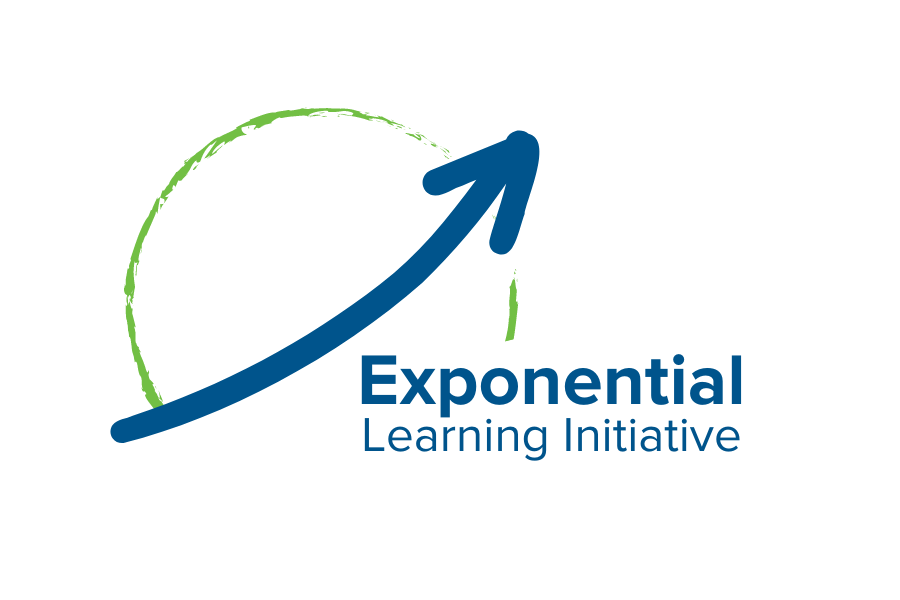Oftentimes, research is done on schools and systems. In this extractive relationship, researchers collect data, rarely including participants in the design or analysis, and then later report findings back to the sites. At The Learning Accelerator (TLA), we believe that research should occur with our partners. This means addressing questions that are meaningful to them and enhancing their learning.
When designing our Accelerating Evidence study as part of the Exponential Learning Initiative, we wanted participants to learn from each other and intentionally incorporated two learning loops into our plans. These virtual sessions bring together leaders from each of the six virtual and hybrid models in our study to share and collaborate. The first of these two-hour sessions, which occurred a few weeks ago, allowed us to dive into some emergent questions:
- What has been most instrumental in developing and/or scaling your model?
- What are the system conditions you feel need to be in place for your model to succeed?
- What advice would you have for others who want to implement your model in their contexts?
- What role has student, family, and teacher feedback played in how you designed your model?
Across breakout groups and conversations, three themes emerged.
Innovation Requires a Champion
By the nature of their design, each of these six sites has challenged some tenet of traditional, brick-and-mortar public schooling. When asked about the system conditions that have allowed them to succeed, leaders from both Bismarck Public Schools and St. Vrain Valley School District explained the power of having a champion. Whether advocating for anywhere, anytime learning that was not time-bound or pushing for revisions to the district’s schedules, the proactive efforts of champions allowed the sites to address logistical and policy challenges so that their model could take root and expand.
Innovation depends not only on strong ideas but also on how — and by whom — change is driven. With the champion model, leaders at the school, system, and state levels actively advocate for, support, and enable innovation. They overcome obstacles, build momentum among stakeholders, and transform a promising concept into a sustainable model. This approach has been widely successful in edtech implementation and broader systemic change. As discussed during the learning loop, having a dedicated champion often determines whether innovation remains a short-lived experiment or leads to lasting transformation.
Leadership Support Drives Policy Change
Leadership support plays a pivotal role in shaping new policies that can enable innovation within traditional school systems. When discussing what has been instrumental in scaling their models, three of the sites offered examples of this dynamic.
In St. Vrain, district leaders facilitated the growth of the AGILE program by aligning master schedules, ensuring students could participate in virtual and hybrid learning without disrupting their academic progress.
Bismarck Public Schools’ Empower[Ed] hybrid program, designed to personalize learning for 11th and 12th graders, benefited from the advocacy of a state policy leader who secured a seat-time waiver. This policy adjustment provided the flexibility needed for the program to operate effectively within state guidelines.
Finally, Virtual Innovators Academy (VIA), a fully virtual, Big Picture Learning high school in New York City, is actively working to expand its model by demonstrating its impact and advocating for supportive policies. Unlike St. Vrain and Bismarck, which benefited from existing policy flexibility, VIA is forging its own path, leveraging data and partnerships to create an enabling environment for its approach. Together, these examples illustrate how proactive leadership and advocacy are essential for fostering educational innovation while demonstrating the power of policy support in scaling innovative models.
The Critical Role of Feedback and Iteration
Students enroll in virtual and hybrid models for myriad reasons such as access to different courses, increased flexibility and personalization, specialized support, and career-connected learning. For many, these models alleviate the barriers to academic success and personal wellbeing imposed by brick-and-mortar schools. As the leaders reflected on the advice they would give others who might want to implement similar programs in their own systems, they often returned to the critical role of stakeholder feedback and iteration.
From conducting empathy interviews with students to parent advisories to panels of community leaders, the sites engaged stakeholders at multiple points throughout the creation of their models. As a leader from Novi Virtual explained, they have constantly adapted their program in response to feedback from their students.
In a future where students and families seek alternative pathways for learning, public virtual and hybrid models present an effective option. The leaders participating in this study offered critical insights into how to transfer and scale these programs to new contexts.

Follow along with our Exponential Learning Initiative as we continue to surface more evidence in the coming weeks. Subscribe for updates here.

